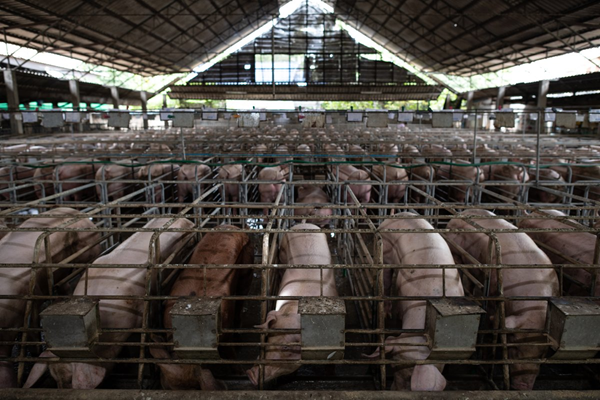

Recent data compiled by economists from the U.S. Department of Agriculture’s Office of the Chief Economist reveals the tangible effects of California’s Proposition 12 on the pork industry. Enacted just over six months ago, Prop. 12 mandates specific space standards for sows raising hogs intended for sale in the state.
The findings indicate a notable surge in pork prices for California consumers, with an average increase of 20% observed in affected products such as loins, ribs, and bellies since the partial implementation of Prop. 12 on July 1, 2023. Particularly striking is the 41% hike in loin prices compared to pre-Prop. 12 levels. Conversely, pork products not covered by the initiative have not experienced significant price fluctuations.
Moreover, California’s share of fresh pork consumption has seen a considerable decline, underscoring the impact of Prop. 12 on consumer behavior and market dynamics.
Wholesale pork sales data further illustrates the limited adoption of Prop. 12-compliant products, accounting for only 2-4% of total pork sales in the United States, falling short of California’s anticipated demand range of 5-6% of total production. The premium paid for Prop. 12-compliant pork at the wholesale level averages 22% higher compared to non-compliant alternatives, with compliant loins and bellies commanding a 30% premium.
The National Pork Producers Council (NPPC) has been a vocal opponent of California’s Prop. 12 since its inception in 2018, raising concerns about its potential to inflate consumer prices. Despite legal challenges, including a case brought before the U.S. Supreme Court, NPPC continues to advocate for a resolution to the law’s detrimental effects, collaborating with Congress members on potential solutions.
However, complying with Prop. 12 presents a significant financial burden for pork producers, many of whom are already grappling with substantial losses incurred in 2023, averaging $30 per market hog. Retrofitting existing barns or constructing new facilities to meet Prop. 12 standards poses financial challenges that may be insurmountable for numerous producers.
The ramifications extend beyond California’s borders, as the proliferation of similar regulations in other states could create a disjointed regulatory landscape across the country, further complicating operations for pork producers nationwide. As the industry navigates these challenges, finding a balance between regulatory compliance, consumer affordability, and producer viability remains imperative for the future of the pork market.




